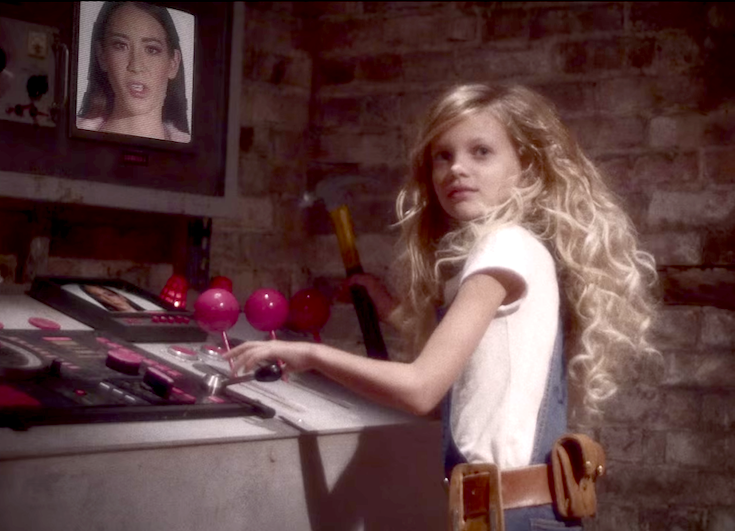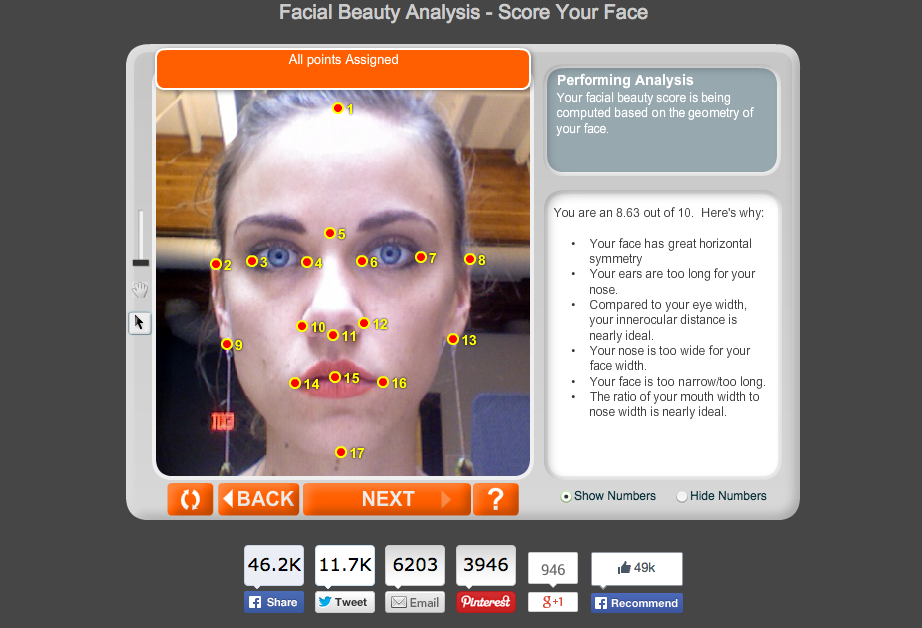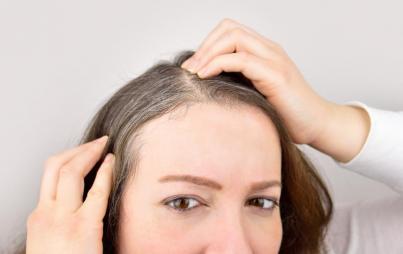
GoldieBlox, the company that aims to make "innovative and fun toys for girls," has released a video that enlightens viewers while inciting fear in them—and honors 1984 and a retro Apple ad in the process.
The short video (it's only 1:18) debuts an action figure that "breaks the mold," and shows little girls riding an assembly line and picking up pretty dolls while "Big Sister" (get it?) repeatedly says: "You are beauty, and beauty is perfection." Metric's "Help I'm Alive" plays creepily in the background (and yes, one girl does "stumble," but no one gets eaten alive). One hammer-wielding girl, dressed in Converses and overalls, then storms the machine and begins smashing things.
The not-so-subtle message: It's time for girls to challenge that notion that beauty is perfection.
But is this really true?
The Ugly Truth About Beauty
Here's the thing about beauty: Our perceptions of it are not just socially enforced, but biologically driven.
As humans, we are naturally drawn to facial symmetry and specific ratios involving the relative positions of the nose, eyes, lips, etc. The so-called "Golden Ratio," based off Fibonacci's famous sequence (0, 1, 1, 2, 3, 5, 8, 13 and so on), is abundant in nature, from flower petals to sea creatures. Our faces aren't exempt from the mathematical scrutiny; humans are drawn to other faces that closely express the Golden Ratio.
A soul-crushing helpful website to test one's facial ratios, Anaface, analyzes faces and provides a mathematical rating. The system is ruthless, even to Angelina Jolie's flawless face. Actually, a lot of celebs don't fare well. I uploaded a picture of myself as an example:
According to Anaface, my face shape is too long and skinny (I already knew this), my nose is too wide (yup, aware) and my ears are too long (hi, new insecurity!). These factors prevent me from being a perfect 10.
The reason we find some people more beautiful than others is, to a certain extent, something we can't control. Instead of pretending such standards don't exist, why not instead tell little girls to focus on other things—athleticism, intelligence, wit, humor, positivity, strength, work ethic, kindness, artistic ability, generosity—which are more easily, and healthily, controlled?
The truth is, not everyone can live up to societal beauty standards—but not everyone is as funny as Tina Fey, either. Why treat beauty any differently?






